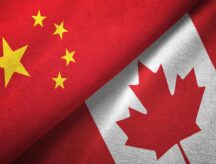Canada’s 2019 federal election: How could it affect immigration and Express Entry?
Canadians will head to the polls in October to elect a new federal government, which could bring changes to Canada's current immigration policies.
Canada’s three major political parties — the governing Liberals, the Conservative Party of Canada and the New Democratic Party (NDP) — are all on the record as being in favour of economic immigration, but there are differences in their approach to the issue that could have an impact on immigration policy.
Under the Liberals, Canada’s immigration policies have taken a direction that puts them in increasingly stark contrast to the current policies of the United States and many European countries.
Chief among their policies was the adoption of increased immigration targets that would see Canada welcome more than one million new permanent residents by the end of 2021 and push the country’s immigration rate to nearly one per cent of its population.
True to their name, they have also liberalized immigration policy to reduce the time it takes to get Canadian citizenship while reforming medical inadmissibility rules and emphasizing family reunification, among other updates.
In their four years in office, the Liberals have also introduced important changes to the Express Entry system, which manages the pool of candidates for three of Canada’s main economic immigration categories — Federal Skilled Worker Class, Federal Skilled Trades Class and Canadian Experience Class.
Find out if you are eligible to enter the Express Entry pool
Since taking power in late 2015, the Liberals have overseen a dramatic increase in the number of invitations to apply for Canadian permanent residence, or ITAs, issued through the Express Entry system — from 33,782 in 2016 to 86,023 in 2017 and 89,800 in 2018.
The Liberals have also introduced significant changes to Comprehensive Ranking System (CRS) that determines a candidate’s position in the Express Entry pool, namely the reduction of additional points awarded for a job offer.
While a job offer is not required in order to be eligible under Express Entry, the Conservatives’ original CRS rewarded candidates with a Labour Market Impact Assessment (LMIA)-backed job offer with an additional 600 CRS points — effectively guaranteeing an invitation to apply for Canadian permanent residence regardless of their core CRS score.
Critics, however, said this approach favoured low-skilled, low-wage labour at the expense of candidates with greater earning potential who would ultimately provide greater economic benefit to Canada.
In late 2016, the Liberals acted on these concerns and reduced the points awarded for a job offer to a maximum of 200.
This has benefited candidates with higher human capital scores, which include age, proficiency in English and French, education, and skilled work experience. Combined, they provide what is known as a candidate’s core CRS score, which can reach a maximum of 600 points.
“The Arranged Employment additional points are now balanced with the core CRS, which means that candidates with a qualifying arranged employment need a sufficiently high core CRS to receive an invitation,” Immigration, Refugees and Citizenship Canada (IRCC) noted in its Express Entry year-end report for 2017.
The report showed that invitations to Federal Skilled Worker Class candidates jumped by nearly 400 per cent in 2017 thanks to the Liberals’ targeted changes to the CRS.
IRCC also reported that lowering the points awarded for a job offer was having a “significant impact on the occupation mix of candidates that received an invitation.”
In 2016, cooks and food service supervisors figured among the top five occupations of candidates invited through Express Entry that year. In 2017, they lost their fourth and fifth place rankings to financial auditors and accountants and administrative assistants and dropped to 28th and 14th, respectively.
Conservatives
If the Conservatives win in October — CBC’s Poll Tracker currently gives them a six-point lead over the Liberals — changes to Canada’s immigration policy are possible.
While they have yet to provide a more extensive outline of their immigration platform, the Conservatives say they are for a "fair, orderly and compassionate" immigration system that would emphasize both an immigrant’s ability to become self-sufficient and Canada’s labour market needs.
“We would directly link the number and skills of people seeking to enter Canada for economic reasons to the needs of the Canadian economy,” Conservative immigration critic Michelle Rempel told reporters earlier this month.
This emphasis on economic immigration was central to Conservative immigration policy when they governed Canada between 2006 and 2015 and resulted in their introduction of the Express Entry system in 2015.
The Conservatives have not said whether they would change the Express Entry CRS or the overall immigration targets set by the Liberals.
Rempel, however, has been critical of the Liberals’ approach to setting the targets, which she compared to an auction.
Rempel said immigration targets had to be rooted in policy and the product of a process.
NDP
Canada’s third major political party, the NDP, is a left-of-centre party that is best known for spearheading the push for universal health care for all Canadians.
While the NDP has never formed the government, they could hold the balance of power in a minority government and thereby contribute to the shaping of immigration policy.
The NDP has yet to detail its approach to immigration policy, but the party’s views on immigration typically emphasize compassion for immigrants and favourable positions on issues like family reunification.
Green Party
Though it only holds two seats in Canada's Parliament, recent electoral gains by the Green Party of Canada could make it a surprise contender in October.
The party's 16 policy priorities on immigration are predicated on the idea that Canada is "a just, fair, and open country" and the belief that new Canadians "are a source of incredible skills and potential for our country."
Among other policies, the Green Party says it would establish "realistic criteria for immigrants based on existing job opportunities for immigrants to Canada" and take action to "eliminate the valuation of foreign credentials for immigration purposes."
The Greens would also press professional societies to remove unnecessary barriers to recognizing professional credentials and ensure professionals have licensing requirements for their professions "clearly explained" before entry.
Canada has emerged as a leader on immigration over the last four years, a position that is gaining recognition the world over.
From the Express Entry system to its network of provincial nominee programs, Canada’s immigration system has broken multiple records and is set to achieve new ones over the next three years.
While immigration may factor into the fall election, it is not likely to take on the tone of elections in the United States and other Western countries given all three of Canada’s major federal political parties describe themselves as pro-immigration.
Mounting labour shortages across the country and broad public support for the economic benefits of immigration mean this position is likely to be maintained.
The big question is how?
“It is refreshing to see all the major parties voicing favourable views on immigration, though we’ve yet to see some important details as to their policies and positions,” said David Cohen, senior partner with the Campbell, Cohen Canadian immigration law firm in Montreal.
“Candidates who are eligible under the current system may want to act quickly in order to maximize their chances of obtaining permanent residence before changes occur.”
Find out if you are eligible for immigration to Canada
© 2019 CICNews All Rights Reserved
- Do you need Canadian immigration assistance? Contact the Contact Cohen Immigration Law firm by completing our form
- Send us your feedback or your non-legal assistance questions by emailing us at media@canadavisa.com






